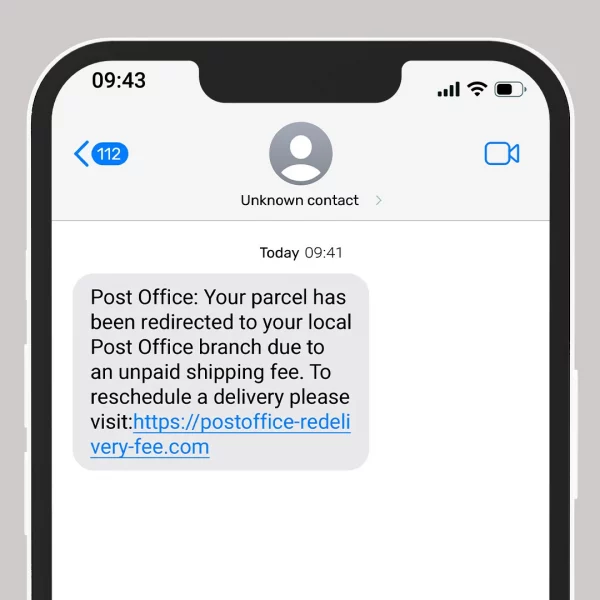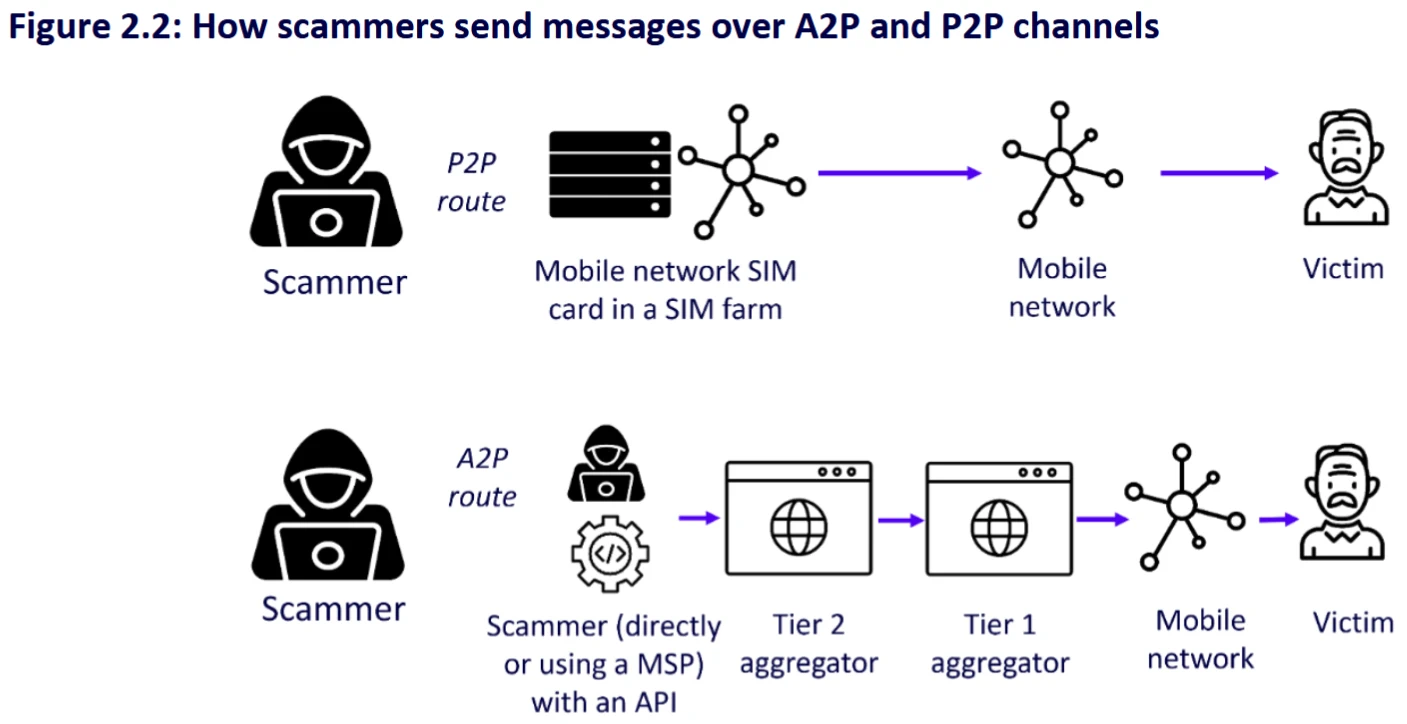Ofcom UK Propose New Rules to Tackle Mobile Messaging Scams

Ofcom has today announced a “comprehensive package of planned measures” that are designed to improve protection for mobile phone users against messaging scams. According to the regulator, some 50% of UK mobile users said they received a suspicious message between Nov 2024 and Feb 2025 via text or iMessage, but it’s hoped today’s changes may reduce that figure.
Most of the United Kingdom’s major broadband, phone and mobile network operators have already implemented various technical measures to tackle things like Nuisance Calls, Scam Calls and Scam Texts (e.g. mobile operators block an estimated 600 million+ messages each year). But these aren’t always 100% effective, and there are still plenty of operators and device manufacturers that could do more.
In particular, scammers often use mobile messaging services to reach victims at a mass scale and manipulate them into making payments or sharing sensitive information (e.g. pretending to be government services or parcel delivery firms – business messaging scams).
Advertisement
Sometimes they may even impersonate a friend or family member texting from a different number, often asking for money in a fabricated emergency situation (i.e. person-to-person messaging scams). This criminal activity causes significant financial and emotional harm to UK people and businesses and damages their confidence in vital communications services.

The Proposed Rules for Tackling Messaging Scams
Person to Person (P2P) Messaging
In order to tackle person-to-person messaging scams, Ofcom are proposing that mobile providers must:
- set volume limits for pay-as-you-go SIM cards. This will make it harder for scammers to message large numbers of potential victims at once;
- block numbers used by scammers. Providers must use scam reports from customers and third parties – such as law enforcement – about phone numbers and web links that are being used to perpetrate scams. They must then prevent scammers from sending messages from these numbers;
- block scam messages in transit. Providers must identify and block scam messages being carried on their networks by detecting malicious sender IDs, weblinks, and phone numbers.
Business Messaging
To disrupt business messaging scams, the regulator is proposing that mobile operators and ‘aggregators’ that transmit businesses’ mobile messages must:
- conduct upfront and ongoing due diligence checks. Effective “Know Your Customer” checks must be carried out on new business message senders to prevent criminals from sending mass texts. Similarly, “Know Your Traffic” checks should be completed, including reviewing account activity and promptly investigating reports of fraud;
- prevent use of fake sender names (known as Alphanumeric Sender IDs). Providers must corroborate business message senders’ Sender IDs, which show who a business mobile message came from, against information they’ve gathered about the business (to check, for example, that a business that purports to be hairdresser is not sending parcel delivery messages – indicating a scammer). They must also maintain a policy on protected sender ID lists and generic sender IDs (such as ‘customer service’);
- apply incident management processes. Where scam activity is identified, root out criminals who are using business messaging services and hold companies to account where they have not conducted appropriate checks; and
- block scam messages in transit. Providers must act on scam reports from users and third parties to detect and block malicious weblinks and phone numbers.
The measures are designed to “further disrupt scammers, raise the bar across the mobile industry and address current gaps in protection for consumers and businesses“. But some of the proposals, like the idea of putting volume limits on PAYG SIMs, could impact legitimate consumers too if not carefully considered. This is especially relevant given how most PAYG plans are more like normal Pay Monthly services today, albeit often on shorter 30-day terms (i.e. the definition between what is Pay Monthly and PAYG has become somewhat confused).
However, we understand that the volume limits would focus more on how many messages get sent via a SIM over a specific period of time, which we presume would be set to try and separate automated activity from human usage. Most, but not all, mobile operators in the UK already set such limits (varies between 100 per hour to tens of thousands a month), but even when adopted their application and enforcement can vary a lot (e.g. sometimes further texts are blocked, while in other cases accounts get sent for manual review). Ofcom seems to be seeking to standardise a more effective approach.
Advertisement
Ofcom are also proposing new rules for all mobile operators and aggregators to ensure the requirements are effective and to minimise the risk that providers block legitimate messages. These include: a right to challenge where numbers or messages are blocked; and requirements relating to reviewing policies, training staff, record keeping, compliance with data protection legislation and the continued transmission of legitimate messages.
Amy Jordan, Ofcom’s Strategy Delivery Director, said:
“Messaging scams can have a devastating impact on their victims. Our plans will ensure that mobile firms consistently apply proven measures to thwart these crimes. That means locking scammers out of networks and blocking hundreds of millions more scams from getting through to people and businesses each year.”
Ofcom’s related consultation on all this is now open for responses until by 5pm on 28th January 2026 and, after that, they aim to publish their final decision sometime during summer 2026.
Mark is a professional technology writer, IT consultant and computer engineer from Dorset (England), he also founded ISPreview in 1999 and enjoys analysing the latest telecoms and broadband developments. Find me on X (Twitter), Mastodon, Facebook, BlueSky, Threads.net and Linkedin.






















































“some 50% of UK mobile users said they received a suspicious message between Nov 2024 and Feb 2025 via text or iMessage”
Likely the other 50% didn’t realise it was a suspicious message and got scammed…
How about they sort out the price rise scams, facilitated by their own lack of oversight?
They’re not robbing people of their life savings or pensions, are they?
And? By your definition, a scam must be a specific monetary value. Got it.
“Providers must identify and block scam messages being carried on their networks by detecting malicious sender IDs, weblinks, and phone numbers.”
Hmm suspicious wording. I would hope for end-to-end encrypted services such as iMessage that the spam filters on the receiving device would be sufficient to meet the new requirement? If they are literally required to ‘block scam messages being carried’ then that could be a worrying escalation of the government’s war on our privacy.
It is about classic SMS not iMessage, WhatsApp, etc. Most likely not even about RCS
Yes you’re right, thanks! The article and Ofcom’s website do mention iMessage but the actual consultation document says it only applies to SMS/MMS.
It’s the bloody robo callers they need to work on. I have to now screen all my calls which annoys my family but I was getting 6-8 a day until recently. All telling me my phone will be cut off or my visa will expire soon.
I must be one of the lucky ones, I don’t get them, I get a call from the company that I have my domain with now and again, because they seem to think I am a large business and need a website, but that is about it.
I don’t get scam text either, emails I do, I get a few of them, but my email provider is pretty good at sorting them out, and those that slip by, I notice anyway, I never click on links from emails.
I don’t even get people coming to the door like others do, maybe they know it is me 🙂
Maybe mobile operators should stop treating SIM farms with hundreds of cards logged to the same mast as income in the first place? They definitely can see this, even easier to block if this traffic is from abroad.
Part of the scam is always to add a certain number on WhatsApp
When that gets asked you can be certain it’s a scam although anyone with even a tiny bit of competence can spot the scam from the initial message
There were technical measures brought in to block scam calls, which did well to block overseas call centres from calling using fake/spoofed landline numbers.
So they all just call using spoofed UK mobile numbers instead.
Literally had people calling my number claiming I just called them from a call centre as they had spoofed my number to call out on.
These measures seem like a positive step, but will it really make a differance or will scammers just switch tactic like move to whatsapp for example or find loop holes as they have for calling.